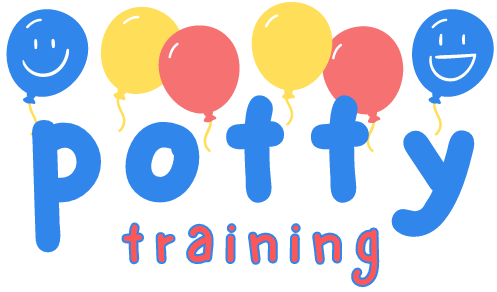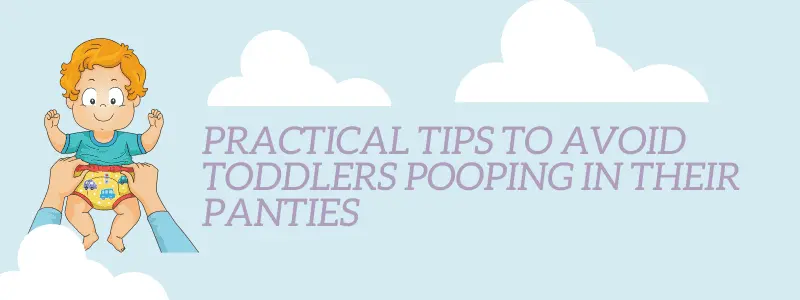Hi there, fellow parents! So, you’re knee-deep in the potty training journey with your three-year-old, and while she’s acing the pee part and did not poop in the potty, mastering number two seems to be a whole different ball game. You’re not alone—many parents face this challenge when their child is pooping in panties more frequently. But fear not, because I’ve got some insights and tips to help you navigate this poop predicament.
Table of Contents
Dealing with Pooping Accidents

Let’s be real—poop accidents can be stressful for any parent. Whether it’s at home or out in public, dealing with the poop in panties, is never easy. But there are ways to minimize the mess and make the transition to potty training smoother.
TIP 1: What Goes In, Must Come Out

Believe it or not, your child’s diet plays a big role in their bowel movements. Foods high in fiber, like fruits, vegetables, and whole grains, can help keep things moving smoothly. On the other hand, a lack of fiber and dehydration can lead to constipation and discomfort.
Confusion:
Many parents often confuse constipation with poop withholding, assuming they are the same thing. However, they’re distinct issues that require different approaches. poop withholding entails a child displaying anxiety about using the bathroom, often avoiding sitting on the toilet altogether. While withholding poop can lead to constipation, they’re not identical issues and necessitate unique strategies.
Tip 2: Making the Bathroom a Safe Place
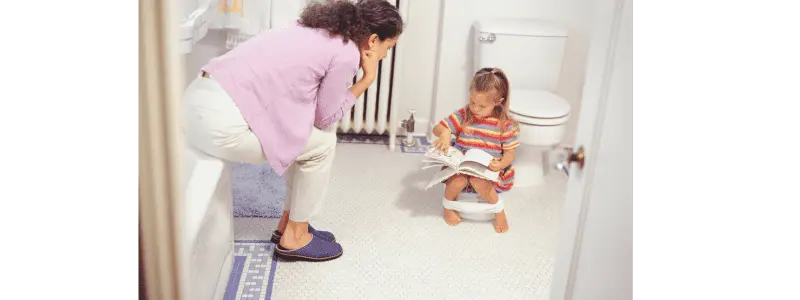
The bathroom can be a scary place for some kids, especially when it comes to using the potty. To make the experience more comfortable, consider using a child-sized potty or a fun toilet seat insert. Stocking up on wipes and toilet paper can also help make things easier.
Tip 3: Transition from Diapers
For toddlers accustomed to doing their business in diapers, switching to the potty can feel like a big change. It requires patience and time for them to adjust to this new way of doing things. Just like muscle memory, which they’ve built up from using diapers, transitioning to the potty takes practice and repetition. It’s essential to celebrate every achievement, no matter how small, and to understand that accidents are a natural part of the learning process.”
Tip 4: Show and Tell
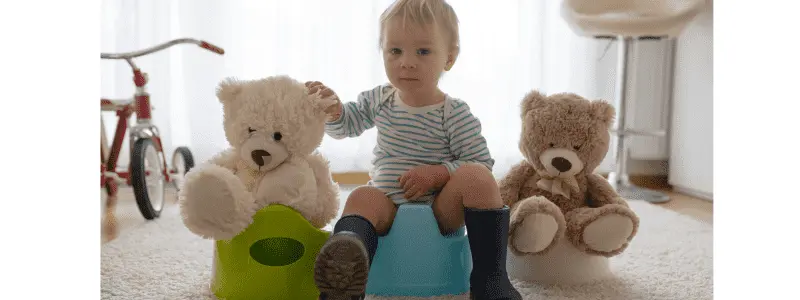
Some parents find success by letting their child deposit poop from their diapers into the toilet. By showing them where it goes and letting them flush it down, they begin to understand that the toilet is the proper place for it. Additionally, talk to your child about people they know who use the toilet regularly, like friends or family members, to normalize the behavior.
Tip 5: Change of Venue
If your little one tends to hide while pooping, try changing the location. When you catch her in the act, gently take her to the bathroom and encourage her to poop there, even if it’s in her diaper. Over time, she may become comfortable doing it in the bathroom, setting the stage for future success on the potty.
Tip 6: Establishing Routine Over Celebration
It’s essential to normalize the process of potty training to help toddlers see it as a regular part of their daily routine, rather than an extraordinary achievement worthy of celebration every time they use the potty.
Just like brushing teeth, which we do routinely without fanfare, potty training should be approached in a similar manner. While it’s important to acknowledge and encourage your toddler’s progress, excessive celebration for every successful trip to the potty can inadvertently send the message that using the toilet is an exceptional event rather than a normal activity.
Tip 7: Maintaining Privacy
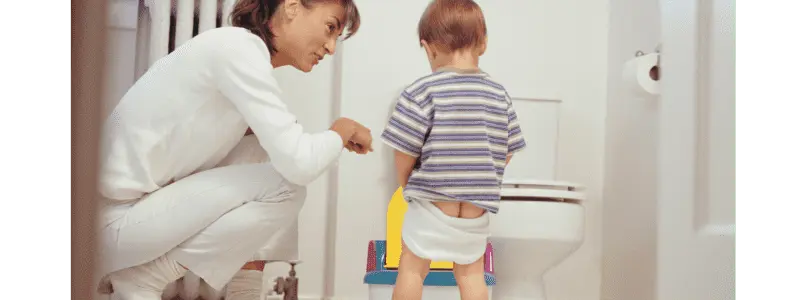
One often overlooked tip during the early stages of potty training is respecting your child’s need for privacy, especially when they sense a poop is imminent.
It may seem straightforward, but many parents focus primarily on monitoring their child for signs of needing to pee, inadvertently neglecting the importance of privacy during bowel movements.
Toddlers, even as young as three years old, may already feel a sense of embarrassment or shame around bathroom activities. When a parent hovers or observes closely, it can exacerbate these feelings, making it difficult for the child to relax and release the poop.
Wrapping It Up: You Can Do This!
Potty training can be tough, but with the right approach and a little bit of patience, you and your child will get through it together. Hang in there, and remember that accidents happen—it’s all part of the learning process.
.
FAQs about Child Not Pooping in the Potty:
Q1: My child refuses to poop in the potty. What should I do?
A1: If your child is hesitant to poop in the potty, it’s essential to remain calm and patient. Avoid pressuring or forcing them, as this can lead to further resistance. Instead, create a positive and supportive environment, offer encouragement, and provide incentives for trying.
Q2: How can I encourage my child to poop in the potty instead of in their pants?
A2: Start by identifying any underlying reasons for your child’s reluctance, such as fear or discomfort. Address these concerns by making the bathroom a comfortable and inviting space and offering reassurance and support. Encourage regular toilet sitting times and celebrate small successes.
Q3: What if my child holds their poop and refuses to go altogether?
A3: If your child is withholding poop, it’s essential to address the issue promptly to prevent constipation and discomfort. Encourage regular toilet sitting times, offer plenty of fluids and fiber-rich foods, and seek advice from pediatricians or potty training experts if the problem persists.
Q4: Should I use rewards or incentives to motivate my child to poop in the potty?
A4: While rewards can be helpful in motivating some children, it’s essential to use them sparingly and focus on intrinsic motivation. Offer praise and encouragement for efforts, regardless of success, and avoid pressure or coercion.
Q5: How long does it take for a child to start pooping in the potty regularly?
A5: Every child is different, so there is no set timeline for when a child will begin pooping in the potty consistently. Be patient and supportive, and celebrate each milestone along the way. If your child continues to struggle, consider seeking guidance from pediatricians or potty training experts.
